
 (732) 246-1377
(732) 246-1377
 (732) 246-1377
(732) 246-1377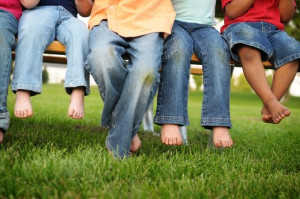 Children’s soccer has become an increasingly popular sport in the United States, making children more prone to foot and ankle injuries. The American Academy of Pediatrics states that injuries can occur when players collide and even when running, twisting or landing. Boys are more likely to incur ankle injuries especially when turning or stopping. Since children are constantly growing, some may experience irritation on the growth plate of the heel resulting in heel pain. Anti-inflammatories, ice, and stretching can help reduce this pain. However, consulting a healthcare professional is always the best bet when injuries occur. Participating in conditioning exercises, wearing proper cleats, teaching proper techniques, and maintaining field conditions can assist in preventing injury.
Children’s soccer has become an increasingly popular sport in the United States, making children more prone to foot and ankle injuries. The American Academy of Pediatrics states that injuries can occur when players collide and even when running, twisting or landing. Boys are more likely to incur ankle injuries especially when turning or stopping. Since children are constantly growing, some may experience irritation on the growth plate of the heel resulting in heel pain. Anti-inflammatories, ice, and stretching can help reduce this pain. However, consulting a healthcare professional is always the best bet when injuries occur. Participating in conditioning exercises, wearing proper cleats, teaching proper techniques, and maintaining field conditions can assist in preventing injury.
Making sure that your children maintain good foot health is very important as they grow. If you have any questions, contact one of our podiatrists of Livingston Footcare. Our doctors can provide the care you need to keep you pain-free and on your feet.
Keeping Children's Feet Healthy
Having healthy feet during childhood can help prevent medical problems later in life, namely in the back and legs. As children grow, their feet require different types of care. Here are some things to consider...
Although babies do not walk yet, it is still very important to take care of their feet.
Avoid putting tight shoes or socks on his or her feet.
Allow the baby to stretch and kick his or her feet to feel comfortable.
As a toddler, kids are now on the move and begin to develop differently. At this age, toddlers are getting a feel for walking, so don’t be alarmed if your toddler is unsteady or ‘walks funny’.
As your child gets older, it is important to teach them how to take care of their feet.
Show them proper hygiene to prevent infections such as fungus.
Be watchful for any pain or injury.
Have all injuries checked by a doctor as soon as possible.
Comfortable, protective shoes should always be worn, especially at play.
If you have any questions please feel free to contact our office located in North Brunswick, NJ . We offer the newest diagnostic and treatment technologies for all your foot and ankle needs.
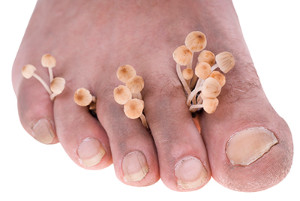 Anyone that has ever had athlete’s foot knows how much of a nuisance it is. It itches and itches and no amount of scratching will make it relent. The foot gets red, and pain can quickly ensue. Athlete’s foot is a fungus, and like most fungi, thrives in warm, moist environments. The gym is a perfect place for this fungus, so it is important to remember to wear sandals when showering after your workout. Keep your feet dry, make sure to clean them well, and change your socks daily. If your feet are prone to sweating you may have an increased risk of athlete’s foot, so double your efforts in this regard. If you do contract the disease, over the counter treatment options are available, and are quite effective.
Anyone that has ever had athlete’s foot knows how much of a nuisance it is. It itches and itches and no amount of scratching will make it relent. The foot gets red, and pain can quickly ensue. Athlete’s foot is a fungus, and like most fungi, thrives in warm, moist environments. The gym is a perfect place for this fungus, so it is important to remember to wear sandals when showering after your workout. Keep your feet dry, make sure to clean them well, and change your socks daily. If your feet are prone to sweating you may have an increased risk of athlete’s foot, so double your efforts in this regard. If you do contract the disease, over the counter treatment options are available, and are quite effective.
Athlete’s foot is an inconvenient condition that can be easily reduced with the proper treatment. If you have any concerns about your feet and ankles, contact one of our podiatrists from Livingston Footcare. Our doctors will treat your foot and ankle needs.
Athlete’s Foot: The Sole Story
Athlete's foot, also known as tinea pedis, can be an extremely contagious foot infection. It is commonly contracted in public changing areas and bathrooms, dormitory style living quarters, around locker rooms and public swimming pools, or anywhere your feet often come into contact with other people.
Solutions to Combat Athlete’s Foot
Athlete’s foot can cause many irritating symptoms such as dry and flaking skin, itching, and redness. Some more severe symptoms can include bleeding and cracked skin, intense itching and burning, and even pain when walking. In the worst cases, Athlete’s foot can cause blistering as well. Speak to your podiatrist for a better understanding of the different causes of Athlete’s foot, as well as help in determining which treatment options are best for you.
If you have any questions please feel free to contact our office located in North Brunswick, NJ . We offer the newest diagnostic and treatment technologies for all your foot and ankle needs.
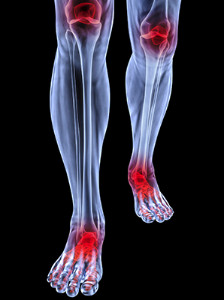 Arthritis is a very common disease that can affect joints in areas all over the body. Arthritis of the feet can be especially painful and debilitating due to the constant weight put on that section of the body. For someone with arthritic feet, every step taken can be excruciating. There are many different types of arthritis, though inflammatory arthritis can be one of the most devastating. Rheumatoid arthritis is one such type, where the cartilage of the joints is being destroyed. Though there is really no set diet to cure this illness, there are some recommended foods that may prove effective in helping mitigate some of the arthritic symptoms. The key is to reduce inflammation. Certain foods that help do just that are nuts, fish, and, dark vegetables.
Arthritis is a very common disease that can affect joints in areas all over the body. Arthritis of the feet can be especially painful and debilitating due to the constant weight put on that section of the body. For someone with arthritic feet, every step taken can be excruciating. There are many different types of arthritis, though inflammatory arthritis can be one of the most devastating. Rheumatoid arthritis is one such type, where the cartilage of the joints is being destroyed. Though there is really no set diet to cure this illness, there are some recommended foods that may prove effective in helping mitigate some of the arthritic symptoms. The key is to reduce inflammation. Certain foods that help do just that are nuts, fish, and, dark vegetables.
Arthritis can be a difficult condition to live with. If you are seeking treatment, contact one of our podiatrists from Livingston Footcare. Our doctors can provide the care you need to keep you pain-free and on your feet.
Arthritic Foot Care
Arthritis is a joint disorder that involves the inflammation of different joints in your body, such as those in your feet. Arthritis is often caused by a degenerative joint disease and causes mild to severe pain in all affected areas. In addition to this, swelling and stiffness in the affected joints can also be a common symptom of arthritis.
In many cases, wearing ill-fitting shoes can worsen the effects and pain of arthritis. Wearing shoes that have a lower heel and extra room can help your feet feel more comfortable. In cases of rheumatoid arthritis, the arch in your foot may become problematic. Buying shoes with proper arch support that contour to your feet can help immensely.
Alleviating Arthritic Pain
It is best to see your doctor for the treatment that is right for your needs and symptoms. Conditions vary, and a podiatrist can help you determine the right method of care for your feet.
If you have any questions, please feel free to contact our office located in North Brunswick, NJ . We offer the newest diagnostic tools and technology to treat your foot and ankle needs.
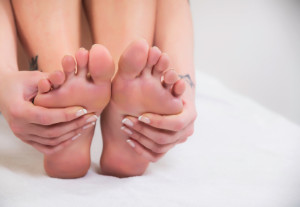 Among foot conditions, corns and calluses are often seen as some of the more harmless concerns. Regardless, if either condition does become troublesome, there are methods available for removal. Because calluses are essentially small areas of thick, hardened skin, softening them can help aid in their removal. Soaking the feet in warm water and avoiding using harsh soaps while washing can help maintain softness of the skin. Hard areas can also be buffed away using a pumice stone. If you are suffering from corns or calluses and seek ways to remove them, consult with your podiatrist.
Among foot conditions, corns and calluses are often seen as some of the more harmless concerns. Regardless, if either condition does become troublesome, there are methods available for removal. Because calluses are essentially small areas of thick, hardened skin, softening them can help aid in their removal. Soaking the feet in warm water and avoiding using harsh soaps while washing can help maintain softness of the skin. Hard areas can also be buffed away using a pumice stone. If you are suffering from corns or calluses and seek ways to remove them, consult with your podiatrist.
If you have any concerns regarding your feet and ankles, contact one of our podiatrists of Livingston Footcare. Our doctors will treat your foot and ankle needs.
Corns: What Are They? and How Do You Get Rid of Them?
Corns can be described as areas of the skin that have thickened to the point of becoming painful or irritating. They are often layers and layers of the skin that have become dry and rough, and are normally smaller than calluses.
Ways to Prevent Corns
There are many ways to get rid of painful corns such as wearing:
Treating Corns
Treatment of corns involves removing the dead skin that has built up in the specific area of the foot. Consult with Our doctors to determine the best treatment option for your case of corns.
If you have any questions please feel free to contact our office located in North Brunswick, NJ . We offer the newest diagnostic and treatment technologies for all your foot and ankle needs.
 Walking is a simple exercise and is one of the easiest that can bring about great results for one’s health. While conditions for walking are often great during the spring, summer and fall, the coldness of the winter often makes it hard to maintain a regular walking regimen. Unless the weather outside is extreme, consider the following recommendations to help get you outside: Check the wind chill before heading out, dress for the weather, invest in the right footwear, stretch to warm up the muscles, stay hydrated, adjust your route to match the conditions outside, and wear reflective clothing when it’s dark.
Walking is a simple exercise and is one of the easiest that can bring about great results for one’s health. While conditions for walking are often great during the spring, summer and fall, the coldness of the winter often makes it hard to maintain a regular walking regimen. Unless the weather outside is extreme, consider the following recommendations to help get you outside: Check the wind chill before heading out, dress for the weather, invest in the right footwear, stretch to warm up the muscles, stay hydrated, adjust your route to match the conditions outside, and wear reflective clothing when it’s dark.
Exercising your feet regularly with the proper foot wear is a great way to prevent injuries. If you have any concerns about your feet, contact one of our podiatrists from Livingston Footcare. Our doctors can provide the care you need to keep you pain-free and on your feet.
Exercise for Your Feet
Exercise for your feet can help you to gain strength, mobility and flexibility in your feet. They say that strengthening your feet can be just as rewarding as strengthening another part of the body. Your feet are very important and often we forget about them in our daily tasks. But it is because of our feet that are we able to get going and do what we need to. For those of us fortunate not to have any foot problems, it is an important gesture to take care of them to ensure its good health in the long run.
Some foot health exercises can include ankle pumps, tip-toeing, toe rise, lifting off the floor doing reps and sets, also flexing the toes and involving the shins may help too. It is best to speak with your doctor regarding how to do these fitness steps and how often is right for you. Everyone’s needs and bodies are different and it varies from individual to individual to determine what should be done for you to maintain strength in your feet.
Once you get into a routine of doing regular exercise, you may notice a difference in your feet and how strong they may become.
If you have any questions please feel free to contact our office located in North Brunswick, NJ. We offer the newest diagnostic and treatment technologies for all your foot and ankle needs.
 According to the American College of Foot and Ankle Surgeons (ACFAS), it’s important to keep your feet safe during the winter months with proper footwear. Proper winter footwear should provide traction against the snow and icy surfaces. The footwear should also keep your feet warm, insulated, and be water-resistant. Proper protection can help ward off against poor blood circulation caused by the cold. Wearing breathable, moisture-resistant socks can also offer greater protection, as keeping the feet dry is just as important as keeping them warm.
According to the American College of Foot and Ankle Surgeons (ACFAS), it’s important to keep your feet safe during the winter months with proper footwear. Proper winter footwear should provide traction against the snow and icy surfaces. The footwear should also keep your feet warm, insulated, and be water-resistant. Proper protection can help ward off against poor blood circulation caused by the cold. Wearing breathable, moisture-resistant socks can also offer greater protection, as keeping the feet dry is just as important as keeping them warm.
Finding a properly-fitting shoe is important in reducing injuries and preventing foot problems. For more information about treatment, contact one of our podiatrists from Livingston Footcare. Our doctors can provide the care you need to keep you pain-free and on your feet.
Proper Shoe Fitting
A common concern when it comes to foot health, having properly fitted shoes can help prevent injuries to the foot. Out feet affect our posture and gait, which in turn affects the biomechanics and overall bodily structure. With 33 joints, 26 bones, and over 100 ligaments, the potential for serious injury is much greater than one realizes. Although the feet cease growth in adulthood, they still change shape as they mature. Here are some factors to consider when it comes to investing in proper fitting shoes:
● Be sure the shoes fit correctly right away
● Ensure the ball of your foot fits comfortably in the widest portion of the shoes
● Even though they may look fashionable, improper fitting shoes can either create adverse conditions or exacerbate existing ones you may already have
● Walk along a carpeted surface to ensure the shoes comfortably fit during normal activity
Keeping in mind how shoes fit the biomechanics of your body, properly-fitting shoes are vitally important. Fortunately, it is not difficult to acquire footwear that fits correctly. Be sure to wear shoes that support the overall structure of your body. Do your feet a favor and invest in several pairs of well-fitted shoes today.
If you have any questions please feel free to contact our office located in North Brunswick, NJ. We offer the newest diagnostic and treatment technologies for all your foot and ankle needs.
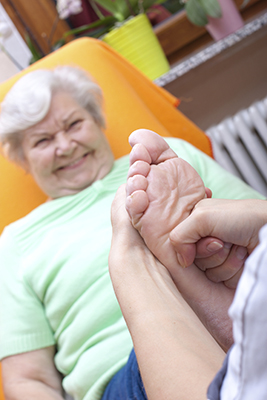 For those who have been diagnosed with diabetes, or those with family members who have diabetes, taking care of your feet is something that should be taken very seriously. Because of the lack of circulation in the feet and legs, numbness or loss of feeling can occur. This could prevent detection of problems such as an ulcer. That, coupled with inordinately slow healing, can cause infections to persist, spread, and even lead to amputation. Make sure to look out for signs of foot problems. If you have numbness or loss of feeling, sores, or any type of slow-healing wound, see a doctor immediately.
For those who have been diagnosed with diabetes, or those with family members who have diabetes, taking care of your feet is something that should be taken very seriously. Because of the lack of circulation in the feet and legs, numbness or loss of feeling can occur. This could prevent detection of problems such as an ulcer. That, coupled with inordinately slow healing, can cause infections to persist, spread, and even lead to amputation. Make sure to look out for signs of foot problems. If you have numbness or loss of feeling, sores, or any type of slow-healing wound, see a doctor immediately.
Diabetic foot care is important in preventing foot ailments such as ulcers. If you are suffering from diabetes or have any other concerns about your feet, contact one of our podiatrists from Livingston Footcare. Our doctors will answer any of your foot- and ankle-related questions.
Diabetic Foot Care
Diabetes affects millions of people every year. Diabetes can damage blood vessels in many parts of the body, including the feet. Because of this, taking care of your feet is essential if you have diabetes, and having a podiatrist help monitor your foot health is highly recommended.
The Importance of Caring for Your Feet
● Routinely inspect your feet for bruises or sores.
● Wear socks that fit your feet comfortably.
● Wear comfortable shoes that provide adequate support.
Patients with diabetes should have their doctor monitor their blood levels because blood sugar levels play such a huge role in diabetic care. Monitoring these levels on a regular basis is highly advised.
It is always best to inform your healthcare professional of any concerns you may have regarding your feet, especially for diabetic patients. Early treatment and routine foot examinations are keys to maintaining proper health, especially because severe complications can arise if proper treatment is not applied.
If you have any questions, please feel free to contact our office in North Brunswick, NJ. We offer the newest diagnostic and treatment technologies for all your foot care needs.
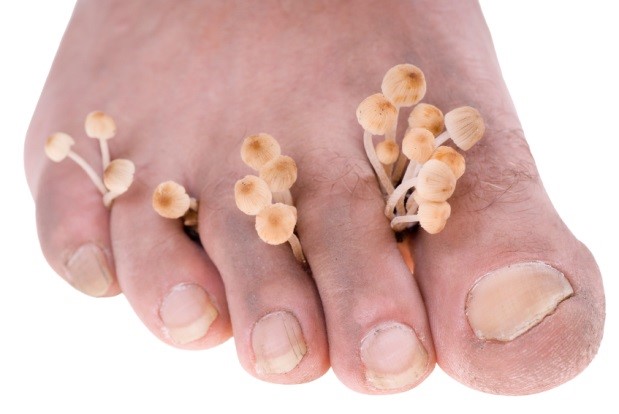 Toenail fungus is a very common disease that affects nearly 20% of Americans today. Ways to prevent contracting this infection are to keep your feet dry, clean, and away from any potential active fungus. Toenail fungus, also known as Onychomycosis, is contagious and care should be taken to never share clippers or scissors. Family members are at high risk of contracting the infection from one another, so awareness of the condition is vital to stemming its spread. There are a number of treatments including topical ointment, pharmaceuticals, and cold laser therapy.
Toenail fungus is a very common disease that affects nearly 20% of Americans today. Ways to prevent contracting this infection are to keep your feet dry, clean, and away from any potential active fungus. Toenail fungus, also known as Onychomycosis, is contagious and care should be taken to never share clippers or scissors. Family members are at high risk of contracting the infection from one another, so awareness of the condition is vital to stemming its spread. There are a number of treatments including topical ointment, pharmaceuticals, and cold laser therapy.
For more information about treatment, contact one of our podiatrists from Livingston Footcare. Our doctors can provide the care you need to keep you pain-free and on your feet.
Toenail Fungus Treatment
Toenail fungus is a problem which affects many people and is hard to get rid of. Fortunately, there are several methods to go about treating toenail fungus.
Antibiotics & Treatments
Lamisil – is the most commonly effective treatment for toenail fungus. It is available as an antibiotic Terbinafine tablet and cream. Terbinafine is a chemical component which kills fungal growth on the body. Applying regular doses will gradually kill the fungal growth. It is important to keep the area clean and air free.
Talcum powder – applying powder on the feet and shoes helps keep the feet free of moisture and sweat.
Sandals or open toed shoes – wearing these will allow air movement and help keep feet dry. They also expose your feet to light, which fungus cannot tolerate. Socks with moisture wicking material also help as well
Alternative Treatments
There are always surgical procedures that are available for toenail fungus. Some people would like immediate quick removal of toenail fungus. Surgeons will be able to cut through and remove the growth using laser surgery. It is important not to try and remove it yourself. Once removed, your old shoes will need to be replaced to avoid reinfection.
If you have any questions please feel free to contact our office located in North Brunswick, NJ. We offer the newest diagnostic and treatment technologies for all your foot and ankle needs.
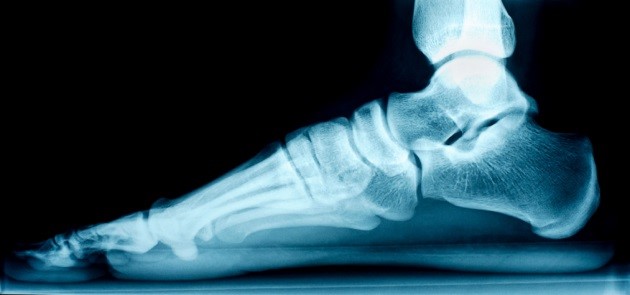 If you have symptoms of pain, stiffness, or balance problems in your feet, then you may have fallen arches, or flat feet. Flat feet can be diagnosed by observing how you stand and walk, and tests that gauge flexibility can as well. MRI’s and X-rays can also be useful in determining if you suffer from this disorder. Not only is having flat feet potentially very painful, it can also cause many other problems related to the feet and spine. If you think you have flat feet, it is important to consult a podiatrist.
If you have symptoms of pain, stiffness, or balance problems in your feet, then you may have fallen arches, or flat feet. Flat feet can be diagnosed by observing how you stand and walk, and tests that gauge flexibility can as well. MRI’s and X-rays can also be useful in determining if you suffer from this disorder. Not only is having flat feet potentially very painful, it can also cause many other problems related to the feet and spine. If you think you have flat feet, it is important to consult a podiatrist.
Flatfoot is a condition many people suffer from. If you have flat feet, contact one of our podiatrists from Livingston Footcare. Our doctors can provide the care you need to keep you pain-free and on your feet.
What are Flat Feet?
Flat feet are a condition in which the arch of the foot is depressed and the sole of the foot is almost completely in contact with the ground. Standing about 20-30% of the population generally has flat feet because their arch never formed during growth.
Conditions & Problems:
Having flat feet makes it difficult to run or walk because of the stress placed on the ankles.
Alignment – The general alignment of your legs can be disrupted, because the ankles move inward which can cause major discomfort.
Knees – if you have complications with your knees, flat feet can be a contributor to arthritis in that area.
Symptoms:
Pain around the heel or arch area
Trouble standing on the tip toe.
Swelling around the inside of the ankle.
Flat look to one or both feet.
Having your shoes feel uneven when worn
Treatment:
If you are experiencing pain and stress on the foot you may weaken the posterior tibial tendon, which runs around the inside of the ankle.
If you have any questions please feel free to contact our office located in North Brunswick, NJ. We offer the newest diagnostic and treatment technologies for all your foot and ankle needs.
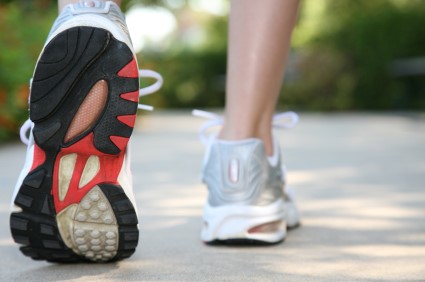 By the time the average American reaches age 50, they are expected to have accumulated 75,000 miles on their feet. If you’re an avid runner, you may have more miles on your feet, so it’s especially important to optimize proper foot care. Knowing your body type, running style, your feet and the kinds of activity you routinely follow are all aspects to consider when maintaining foot care. Proper footwear is also vital in making sure that your feet are comfortable and healthy. Our feet change as we age, expanding and potentially becoming flatter.
By the time the average American reaches age 50, they are expected to have accumulated 75,000 miles on their feet. If you’re an avid runner, you may have more miles on your feet, so it’s especially important to optimize proper foot care. Knowing your body type, running style, your feet and the kinds of activity you routinely follow are all aspects to consider when maintaining foot care. Proper footwear is also vital in making sure that your feet are comfortable and healthy. Our feet change as we age, expanding and potentially becoming flatter.
Exercising your feet regularly with the proper foot wear is a great way to prevent injuries. If you have any concerns about your feet, contact one of our podiatrists from Livingston Footcare. Our doctors can provide the care you need to keep you pain-free and on your feet.
How to Prevent Running Injuries
Many common running injuries are caused by overuse and overtraining. When the back of the kneecap starts wearing out and starts causing pain in your knee, this is commonly referred to as runner’s knee. Runner’s knee is a decrease in strength in your quadriceps and can occur if you’re not wearing properly fitted or supporting shoes. To prevent runner’s knee, focusing on hip strengthening is a good idea, as well as strengthening your quads to keep the kneecaps aligned.
What Are Some Causes of Running Injuries?
- One cause of a common running injury is called iliotibial band syndrome.
- Plantar fasciitis is also another common injury.
- Stress fractures can occur from overtraining, lack of calcium, or even your running style.
Best Ways to Prevent Running Injuries
- Wear footwear that fits properly and suits your running needs.
- Running shoes are the only protective gear that runners have to safeguard them from injury.
- Make a training schedule. Adding strengthening exercises as well as regular stretching can help keep you strong and limber and can lessen the possibility of injuries.
- Stretching keeps muscles limber, this will help you gain better flexibility.
If you have any questions please feel free to contact our office located in North Brunswick, NJ. We offer the newest diagnostic and treatment technologies for all your foot and ankle needs.
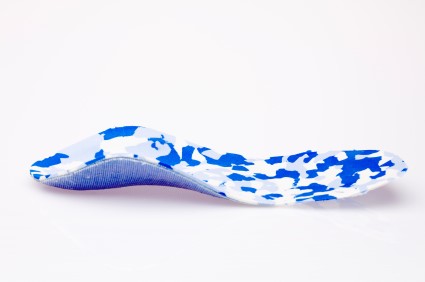 It is no secret that high heels are bad for the feet. The human foot is not designed to wear extremely high heels, forcing the foot to adjust to the unnatural height difference when heels are worn. Additionally, women who have flat feet are more susceptible to foot problems due to a lack of arch support in high heels. Examples of such foot problems include arch pain, foot cramps, tired feet, and leg fatigue. Over-the-counter arch products are a solution to the lack of arch support in many types of footwear and may help prevent foot problems in the future.
It is no secret that high heels are bad for the feet. The human foot is not designed to wear extremely high heels, forcing the foot to adjust to the unnatural height difference when heels are worn. Additionally, women who have flat feet are more susceptible to foot problems due to a lack of arch support in high heels. Examples of such foot problems include arch pain, foot cramps, tired feet, and leg fatigue. Over-the-counter arch products are a solution to the lack of arch support in many types of footwear and may help prevent foot problems in the future.
If you are having discomfort in your feet and would like to try orthotics, contact one of our podiatrists from Livingston Footcare. Our doctors can provide the care you need to keep you pain-free and on your feet.
What are Orthotics?
Orthotics are inserts you can place into your shoes to help with a variety of foot problems such as flat feet or foot pain. Orthotics provide relief and comfort for minor foot and heel pain, but can’t correct serious biomechanical problems in your feet.
Over-the-Counter Inserts
Orthotics come in a wide variety of over-the-counter inserts that are used to treat foot pain, heel pain, and minor problems. For example, arch supports can be inserted into your shoes to help correct over arched or flat feet, while gel insoles are often used because they provide comfort and relief from foot and heel pain by alleviating pressure.
Prescription Orthotics
If over-the-counter inserts don’t work for you, or if you have a more severe foot issue, it is possible to have your podiatrist prescribe custom orthotics. These high quality inserts are designed to treat problems such as abnormal motion, plantar fasciitis, and more severe heel pain. They can even be used to help patients suffering from diabetes by treating foot ulcers and painful calluses, and are usually molded to your feet individually, which allows them to provide full support and comfort.
If you are experiencing minor to severe foot or heel pain, it’s recommended to speak with your podiatrist on the possibilities of using orthotics. A podiatrist can determine which type of orthotic is right for you and allow you to take the first steps towards being pain free.
If you have any questions please feel free to contact our office located in North Brunswick, NJ. We offer the newest diagnostic and treatment technologies for all your foot and ankle needs.
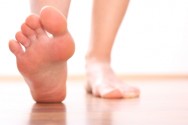 Warts can be classified as small bumps or growth on the skin, typically caused by a virus. Warts can appear anywhere on the body, but they most usually appear on the hands and feet. Plantar warts affect the feet and are caused by the human papillomavirus. If left untreated plantar warts can become painful from repeated friction or pressure to the area. Taking antioxidants such as grape seed in the form of extract supplements is believed to help fight against viral infections. Grape seed is suggested to have therapeutic properties that may help improve the body’s immunity. To determine the best treatment for you, it best to consult with your podiatrist.
Warts can be classified as small bumps or growth on the skin, typically caused by a virus. Warts can appear anywhere on the body, but they most usually appear on the hands and feet. Plantar warts affect the feet and are caused by the human papillomavirus. If left untreated plantar warts can become painful from repeated friction or pressure to the area. Taking antioxidants such as grape seed in the form of extract supplements is believed to help fight against viral infections. Grape seed is suggested to have therapeutic properties that may help improve the body’s immunity. To determine the best treatment for you, it best to consult with your podiatrist. According to Illinois coach Lovie Smith on Twitter, freshman receiver Dominic Thieman had to have surgery and miss the rest of the season after sustaining a broken ankle injury during the loss to Minnesota. The status of Thieman’s injury at the time was unknown but he had to be carted off the field on a stretcher and taken to the hospital.
According to Illinois coach Lovie Smith on Twitter, freshman receiver Dominic Thieman had to have surgery and miss the rest of the season after sustaining a broken ankle injury during the loss to Minnesota. The status of Thieman’s injury at the time was unknown but he had to be carted off the field on a stretcher and taken to the hospital.
Broken ankles need immediate treatment. If you are seeking treatment, contact one of our podiatrists from Livingston Footcare. Our doctors can provide the care you need to keep you pain-free and on your feet.
Broken Ankles
A broken ankle is experienced when a person fractures their tibia or fibula in the lower leg and ankle area. Both of these bones are attached at the bottom of the leg and combine to form what we know to be our ankle.
When a physician is referring to a break of the ankle, he or she is usually referring to a break in the area where the tibia and fibula are joined to create our ankle joint. Ankles are more prone to fractures because the ankle is an area that suffers a lot of pressure and stress. There are some obvious signs when a person experiences a fractured ankle, and the following symptoms may be present.
Symptoms of a Fractured Ankle
● Excessive pain when the area is touched or when any pressure is placed on the ankle
● Swelling around the area
● Bruising of the area
● Area appears to be deformed
If you suspect an ankle fracture, it is recommended to seek treatment as soon as possible. The sooner you have your podiatrist diagnose the fracture, the quicker you’ll be on the way towards recovery.
If you have any questions please feel free to contact our office located in North Brunswick, NJ. We offer the newest diagnostic and treatment technologies for all your foot and ankle needs.
 The fifth metatarsal is the long bone that connects to the pinky toe on the outside of the foot. This bone is especially prone to fracture for people involved in any sort of prolonged physical activity, especially team sports. This is one of the most common injuries in soccer, but many other athletes also suffer this injury. It is vitally important to never ignore any type of foot pain, on the field or off. Professionally, there is immense pressure to perform, which can lead to dependency on prescription painkillers. But the truth is, we all need our feet, not just star athletes. The best course of action is always to contact a podiatrist and get to the root of the problem.
The fifth metatarsal is the long bone that connects to the pinky toe on the outside of the foot. This bone is especially prone to fracture for people involved in any sort of prolonged physical activity, especially team sports. This is one of the most common injuries in soccer, but many other athletes also suffer this injury. It is vitally important to never ignore any type of foot pain, on the field or off. Professionally, there is immense pressure to perform, which can lead to dependency on prescription painkillers. But the truth is, we all need our feet, not just star athletes. The best course of action is always to contact a podiatrist and get to the root of the problem.
Activities where too much pressure is put on the feet can cause stress fractures. To learn more, contact one of our podiatrists from Livingston Footcare. Our doctors can treat your foot and ankle concerns.
Dealing with Stress Fractures of the Foot and Ankle
The Stress Fractures occur on the foot and ankle when muscles in these areas weaken from too much or too little use. Then the feet and ankles lose support when walking or running from the impact of the ground. Since there is no protection the bones receive the full impact of each step. The stress on the feet causes cracks to form in the bones, thus called stress fractures.
What are Stress Fractures?
Stress fractures occur frequently in individuals whose daily activities cause great impact on the feet and ankles. Stress factors are most common among:
-runners
-people affected with Osteoporosis
-play tennis or basketball
-gymnastics
-high impact workouts
Symptoms
Pain from the fractures occur in the area of the fractures, and can be constant or intermittent. It will often cause sharp or dull pain with swelling and tenderness. Engaging in any kind of activity which involves in high impact will aggravate pain.
If you have any questions, please feel free to contact our office located in North Brunswick, NJ. We offer the newest diagnostic and treatment technologies for all your foot care needs.